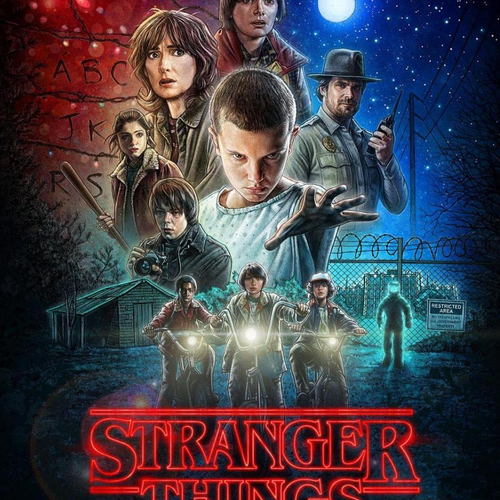7 TV Shows That Addressed Mental Health Issues Without Stigmatising Or Glamorising Them
23 February 2018, 21:06 | Updated: 19 November 2018, 15:59

These shows got real about mental health and actually did a good job.
Television's portrayal of mental illness and mental wellness has drastically improved over the last few years. In the past, audiences were often inundated with unhelpful, stigmatising, or straight up unrealistic portrayals of what it meant to live with a mental illness. Now, television shows are starting to tell more nuanced and careful stories about mental health, and it's a very good sign.
1) Bojack Horseman
Bojack Horseman's portrayal of anxiety, addiction, and grief is certainly one of the more realistic television depictions we've seen in a long while. Because Bojack is animated, the show's producers and writers might feel they have space to lean into the show's emotional moments and tell a realistic story with a lot of heartwrenching (and relatable) moments.

via Netflix/Bojack Horseman
2) My Mad Fat Diary
The depiction of Rae Earl's mental health and body image issues on My Mad Fat Diary clearly come from a very real place. The television show is based on a book and, as a viewer, it's impossible not to empathise with the real and fictional Rae. There is no manic pixie dream girl version of Rae. Rae's story is about recovery and the different ways mental health issues can impact your relationships.

via Channel 4/My Mad Fat Diary
3) Degrassi: Next Class
Degrassi is known for taking on sensitive issues. No matter the topic, Degrassi is always on hand with a Canadian community school perspective. So, when Degrassi: Next Class' Maya tries to end her life, the show makes it clear that there is nothing glamorous or exciting about PTSD and depression. Next Class does a commendable job of developing her character and steering clear of harmful TV mental health tropes.

via Netflix/Degrassi: Next Class
4) Jessica Jones
Audiences understand that Jessica Jones has experienced trauma from a kidnapping and sexual assault, as well as from losing her parents at a young age. Mercifully, we are spared the tired "character who has risen from the ashes" trope, and allowed to see Jessica as a deeply flawed woman. Jessica, as a result of this trauma, has developed her own coping mechanisms, some of them unhealthy. However, Jessica Jones does not perpetuate the myth that to be a powerful hero you need to re-traumatise yourself daily or fundamentally change who you are as a person.

via Netlix/Jessica Jones
5) Crazy Ex-Girlfriend
Rachel Bloom does an excellent job of acting out the complicated, messy, and often gut-wrenching moments of Rebecca Bunch's life. Rachel is a mental health advocate herself and portrays this character so well. When Rebecca finally gets diagnosed with Borderline Personality Disorder, her reaction is distinctly human. A lesser show would see Rebecca get onto a mood stabiliser and magically feel better. Crazy Ex-Girlfriend dares to imagine a world where recovery is actually gradual and a diagnosis isn't a magic spell that makes everything perfect.

via CW/Crazy Ex-Girlfriend
6) Unbreakable Kimmy Schmidt
The character of Kimmy Schmidt is actually quite layered. While she may seem silly or even child-like, the understanding that she is a survivor of a deeply traumatic experience is never far from the audience's mind. Kimmy's new life and her new found "unbreakableness" is a reminder that starting over and rebuilding after a life-altering experience takes work but is possible.

via Netflix/Unbreakable Kimmy Schmidt
7) This Is Us
This Is Us talks about addiction and anxiety in a way that feels distinctly human. The show engages with its audience about these struggles by creating realistic layers to the characters. This helps us see them as more than a sketch or an outline of a person. We also see Randall's issues with anxiety through more than just a two-dimensional lens or singular trope. Even the way their individual issues colour their interactions as family members might feel familiar to anyone with a complex family dynamic. This Is Us strikes a really nuanced tone when discussing how trauma and loss can impact a group of people.

via NBC/This Is Us



















